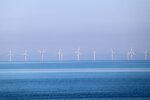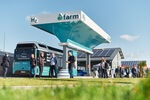07/19/2007
Germany - Bosch to build EUR 180 million manufacturing plant
The Bosch Group has announced that it will build an EUR 180 million manufacturing plant for large wind turbine generators gear units in Nurnberg, Germany, for its subsidiary Bosch Rexroth. The group also plans to invest further in the production of gasoline direct injection components. For these two projects, Bosch intends to invest a total of EUR 280 million in its Dieselstrasse and Zweibrueckener Strasse plants by 2013. The investment will create some 360 new jobs. In addition, plant management, works councils, and the IG Metall union in Nuremberg have agreed on a comprehensive package of measures to improve competitiveness and cut costs.
Part of this agreement provides for safe jobs for the location's more than 2,500 associates until the end of 2013. Commenting on this agreement, Klaus-Juergen Stenzel, plant manager in Nurnberg, said: 'In a joint effort, we have managed to find an acceptable solution for the Nuremberg location that provides everyone involved with good prospects for the future.' Up to 2013, Bosch Rexroth will invest some EUR 180 million in a new factory to make large wind-turbine gear units.
Bosch expects to deliver the first large wind-turbine gear units from Nurnberg in early 2009. The new factory will supplement its existing German manufacturing operation in Witten. The gears and control systems manufactured by Bosch Rexroth are the core components of wind turbines.
The Bosch Group said that in 2006, the output of the wind turbines installed worldwide equalled the equivalent of over ten 1,400MW nuclear power stations. The group forecasts that this capacity will more than triple in the coming ten years. An average 1.5MW wind turbine can cover the electricity requirements of 1,000 four-person households.
Agreement to secure employment at the Nurnberg location - apart from this investment in wind power, Bosch will invest some EUR 100 million in infrastructure, plant, and equipment for gasoline direct injection and current products. Bosch will bundle the production operations of the Gasoline Systems division at the Zweibrueckener Strasse plant.
In the area of automotive technology, Bosch mainly manufactures products for gasoline systems in Nurnberg, with a workforce of more than 2,200. The main products are throttle devices, high-pressure pumps, and fuel rails for gasoline direct injection, as well as components for the control of automatic transmissions.
In addition, in the Bosch Group's international manufacturing network, Nurnberg is the lead plant for coordinating the manufacture of components and modules for gasoline injection. The promise to invest in the Nuremberg locations was given in return for agreements on comprehensive measures to improve competitiveness.
These measures were necessary because of increasing price pressure for certain components produced by Gasoline Systems, and well as for some of the external gear units manufactured by Bosch Rexroth. The appoved cost-cutting programme includes a waiver of certain salary components and the use of associates' own time for training programmes.
In addition, plant management and works councils agreed on further flexibility in weekly working time, with up to 21 shifts/week. 'The package that has been agreed is intended to secure employment at the Nuremberg location over the long term, and to create a better balance in employment levels at the two plants.
Skilled workers, the necessary infrastructure, and new investments offer good prospects for expansion of the growth areas of wind power and gasoline direct injection,' said Ekkehard Kristfeld, Bosch Rexroth AG plant manager in Nuremberg. There will be no redundancies until the end of 2013. Moreover, it has been agreed that vocational training will be extended from its present level of roughly 50 apprentices per intake year to 60. In total, Bosch presently trains 130 young people in Nurnberg, qualifying them for industrial and commercial careers.
Part of this agreement provides for safe jobs for the location's more than 2,500 associates until the end of 2013. Commenting on this agreement, Klaus-Juergen Stenzel, plant manager in Nurnberg, said: 'In a joint effort, we have managed to find an acceptable solution for the Nuremberg location that provides everyone involved with good prospects for the future.' Up to 2013, Bosch Rexroth will invest some EUR 180 million in a new factory to make large wind-turbine gear units.
Bosch expects to deliver the first large wind-turbine gear units from Nurnberg in early 2009. The new factory will supplement its existing German manufacturing operation in Witten. The gears and control systems manufactured by Bosch Rexroth are the core components of wind turbines.
The Bosch Group said that in 2006, the output of the wind turbines installed worldwide equalled the equivalent of over ten 1,400MW nuclear power stations. The group forecasts that this capacity will more than triple in the coming ten years. An average 1.5MW wind turbine can cover the electricity requirements of 1,000 four-person households.
Agreement to secure employment at the Nurnberg location - apart from this investment in wind power, Bosch will invest some EUR 100 million in infrastructure, plant, and equipment for gasoline direct injection and current products. Bosch will bundle the production operations of the Gasoline Systems division at the Zweibrueckener Strasse plant.
In the area of automotive technology, Bosch mainly manufactures products for gasoline systems in Nurnberg, with a workforce of more than 2,200. The main products are throttle devices, high-pressure pumps, and fuel rails for gasoline direct injection, as well as components for the control of automatic transmissions.
In addition, in the Bosch Group's international manufacturing network, Nurnberg is the lead plant for coordinating the manufacture of components and modules for gasoline injection. The promise to invest in the Nuremberg locations was given in return for agreements on comprehensive measures to improve competitiveness.
These measures were necessary because of increasing price pressure for certain components produced by Gasoline Systems, and well as for some of the external gear units manufactured by Bosch Rexroth. The appoved cost-cutting programme includes a waiver of certain salary components and the use of associates' own time for training programmes.
In addition, plant management and works councils agreed on further flexibility in weekly working time, with up to 21 shifts/week. 'The package that has been agreed is intended to secure employment at the Nuremberg location over the long term, and to create a better balance in employment levels at the two plants.
Skilled workers, the necessary infrastructure, and new investments offer good prospects for expansion of the growth areas of wind power and gasoline direct injection,' said Ekkehard Kristfeld, Bosch Rexroth AG plant manager in Nuremberg. There will be no redundancies until the end of 2013. Moreover, it has been agreed that vocational training will be extended from its present level of roughly 50 apprentices per intake year to 60. In total, Bosch presently trains 130 young people in Nurnberg, qualifying them for industrial and commercial careers.
- Source:
- Bosch Rexroth
- Author:
- Posted by: Trevor Sievert (Online Editorial Journalist)
- Email:
- wind-gears@boschrexroth.de
- Link:
- www.boschrexroth.com/...
- Keywords:
- wind energy, wind farm, renewable energy, wind power, wind turbine, rotorblade, offshore, onshore


























